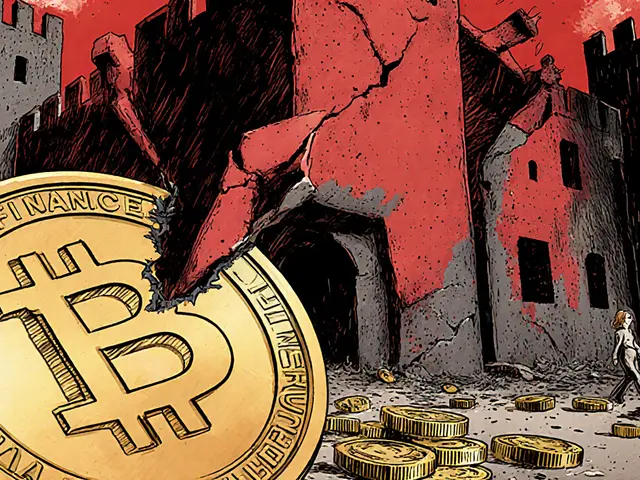El Salvador Bitcoin: How the Country Made Crypto Law and What It Really Changed
When El Salvador Bitcoin, the world’s first national adoption of Bitcoin as legal tender. Also known as Bitcoin legal tender, it was a bold move that shook up global finance and sparked debates from Wall Street to rural villages. In September 2021, El Salvador didn’t just experiment with crypto—it made Bitcoin a real currency you could use to pay for coffee, bus rides, and electricity bills. This wasn’t a trial run. It was law. And it wasn’t just about technology. It was about money, power, and who controls it.
The government didn’t just slap Bitcoin onto the existing system. It built Chivo Wallet, a state-backed digital wallet app designed to let citizens receive, send, and spend Bitcoin without fees. Also known as Chivo app, it came with $30 in free Bitcoin for every user who signed up. But behind the flashy launch, problems piled up: poor internet access in rural areas, confusion over how to use it, and businesses that still preferred dollars. The CBDC vs Bitcoin, the tension between government-controlled digital currency and decentralized Bitcoin. Also known as digital peso vs Bitcoin, it became a quiet undercurrent in the policy debate. While El Salvador pushed Bitcoin, the IMF and World Bank pushed back, warning of volatility and financial risk. The country didn’t abandon the U.S. dollar. It just added Bitcoin as a second option. That’s key. People didn’t have to use it. But if they did, the government promised to convert it instantly to dollars at the point of sale—so no one had to hold Bitcoin if they didn’t want to.
What’s clear now, years later, is that adoption wasn’t as widespread as the headlines claimed. Most Salvadorans still use cash or dollars. But the real impact wasn’t in daily spending—it was in signaling. El Salvador proved a small nation could defy global financial norms. It attracted crypto investors, sparked new startups, and forced other countries to ask: Could we do this too? Countries like Paraguay, Ukraine, and even Nigeria started exploring similar ideas. Meanwhile, Bitcoin mining took off in El Salvador thanks to cheap hydroelectric power, turning the country into an unlikely hub for energy-intensive crypto operations.
What you’ll find in the posts below isn’t just news about El Salvador’s Bitcoin experiment. It’s the ripple effect: how one small country’s decision changed the conversation around regulation, adoption, and what money even means in the digital age. You’ll see how other nations reacted, what went wrong, who benefited, and why this story still matters—even if you live thousands of miles away.

El Salvador made Bitcoin legal tender in 2021 to boost remittances and financial inclusion. But low adoption, volatility, and technical failures turned the experiment into a cautionary tale - not a revolution.
Continue Reading





